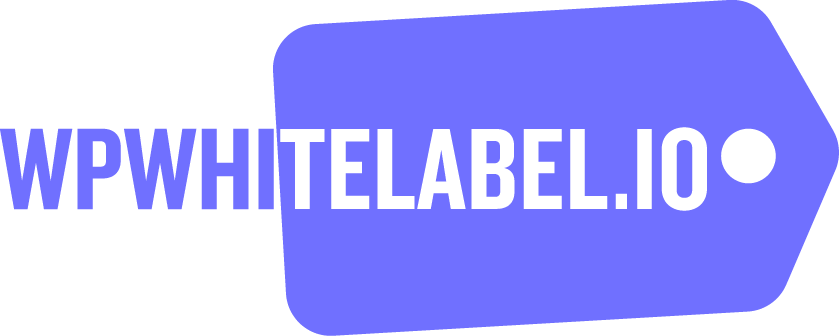WordPress development services are in high demand, and pricing them correctly can make or break your business. Digital agencies and resellers often face challenges in determining the right pricing strategy. Factors such as project scope, market demand, and competition play a critical role in setting prices. This guide will walk you through the key considerations when pricing your WordPress development services, so you can stay competitive while ensuring profitability. We’ll cover everything from understanding project complexity to offering value-added services that enhance your packages. Let’s dive in.
1. Understand the Scope of the Project
Pricing starts with understanding the project’s scope. A basic informational website is less complex than a custom eCommerce platform with integrated payment gateways and multiple functionalities.
Steps to Determine Project Scope
- Discuss client goals: Begin by clearly understanding what your client wants to achieve with their website.
- List necessary features: Identify all the features needed, such as blog functionality, contact forms, shopping carts, or membership systems.
- Assess design requirements: Determine if your client wants a premade theme or a custom design.
After identifying these key elements, you can categorize the project as simple, intermediate, or complex. Each level of complexity should carry different pricing structures.
Tip: Use detailed questionnaires or templates to gather the necessary information from your client upfront.
Learn: How White-Label Providers Can Assist with Crafting Website Proposals for Your Clients
2. Research Market Rates
Understanding what competitors are charging for similar services is crucial. Research both local and global rates for WordPress development.
- Local Agencies: Look at what similar-sized agencies or freelancers in your region are charging. Pricing can vary widely based on location and expertise.
- Global Freelance Platforms: Check freelance platforms to see what other professionals are offering for WordPress services.
Remember, while competitive pricing is important, underpricing your services can lead to undervaluation of your work.
Find out: Why Choosing a White Label WordPress Agency is a Smart Move for Freelancers & Digital Agencies
3. Factor in Experience and Expertise
Your level of experience should influence your pricing. Clients will be willing to pay more for developers who have proven expertise and a portfolio of successful projects.
- Junior Developers: Those new to the industry can start with lower rates but gradually increase as they build experience and expertise.
- Mid-Level to Expert Developers: Agencies or freelancers with more advanced skills, especially in niche areas like custom plugin development or advanced theme customization, can charge higher rates.
Additionally, highlight any certifications or specialized training that sets your agency apart, as this can justify a premium price.
Read: How to Build Custom WordPress Themes Through White Label Services
4. Decide Between Hourly vs Fixed Pricing
Choosing between hourly and fixed pricing models depends on the nature of the project and your preference as a service provider. Let’s look at both options:
- Hourly Pricing: Best suited for projects with uncertain timelines or evolving scopes. You charge based on the number of hours worked, which provides flexibility if the project grows in scope.
- Fixed Pricing: This approach works well for well-defined projects with clear timelines and deliverables. It involves charging a flat fee for the entire project, regardless of time spent.
Both models have their pros and cons. Hourly pricing protects you from scope creep, while fixed pricing offers clients a clearer budget from the start. Choose the model that works best for the project at hand.
Check out: Benefits and Costs of Outsource Figma to WordPress Conversion
5. Consider Additional Costs
Agencies should consider various hidden costs when pricing WordPress development services.
- Software and Plugins: Clients may require premium plugins or third-party integrations that add to the cost. Be sure to factor these into your pricing.
- Hosting and Maintenance: If you are offering hosting or maintenance services, these should be included in the total price or as add-ons.
- Project Management Tools: If you use specific tools to manage the client’s project, you may want to account for those costs in your pricing.
It’s important to be transparent about any additional fees, so clients aren’t caught off guard.
Know about: Outsourcing WordPress Development
6. Create Service Tiers
Offering tiered packages is a great way to cater to different budgets and client needs. Service tiers allow potential clients to choose the level of service they require, giving them flexibility in price.
- Basic Package: Includes a simple WordPress setup with a standard theme and basic functionalities such as contact forms or blog pages.
- Intermediate Package: Offers custom themes, some e-commerce features, and additional plugins.
- Premium Package: Fully customized website design, advanced functionality, ongoing maintenance, and SEO optimization.
Service tiers not only help clients make a decision based on their budget but also offer upsell opportunities for your agency.
Read: Complete List of Web Services to Outsource to White-Label Providers
7. Offer Value-Added Services
You can enhance your WordPress development services by offering value-added services that clients find attractive. These extras can justify higher pricing and create long-term relationships with clients.
Some value-added services include:
- Ongoing Maintenance: Offer a monthly retainer for website updates, security checks, and backups.
- SEO Optimization: Many clients seek SEO-friendly websites, so including basic on-page SEO in your development package adds value.
- Content Creation: Help clients with blog posts, product descriptions, or other content services.
- Training and Support: Offer WordPress training for clients needing assistance managing their websites.
The more comprehensive your service, the more you can charge.
Know about: Top Tips to Outsource WordPress Site Migration Efficiently
8. Review and Adjust Pricing Regularly
As your agency grows and gains more experience, you should regularly review your pricing strategy. Factors such as inflation, increasing software costs, and expanding your service offerings can all impact your pricing. Stay informed about market changes and adjust accordingly to maintain profitability. Regularly assess your competitors’ prices and evaluate whether your rates need adjustment. Keep your clients informed of any changes ahead of time, so they are not surprised by sudden increases.
The Ultimate Growth Hack: Leveraging White Label WordPress Services for Digital Agency Success
Conclusion
Pricing your WordPress development services requires careful consideration of various factors, from project complexity to market demand. By understanding the scope of the project, researching competitor rates, and considering your level of expertise, you can set competitive and profitable prices.
Offering tiered packages, additional services, and value adds can make your agency stand out and justify premium pricing. Remember, the key is to strike a balance between client satisfaction and business profitability. Regularly review your pricing strategy to stay competitive and ensure sustainable growth for your agency.
FAQs About WordPress Development Pricing
How do I decide between hourly and fixed pricing?
It depends on the project. Hourly pricing is better for projects with undefined scopes, while fixed pricing suits well-defined projects with clear deliverables.
How much should a beginner WordPress developer charge?
Beginners can start with lower rates, usually between $25 to $50 per hour, and gradually increase as they build a portfolio and gain experience. Contact us for custom quotes.
What additional services should I offer to increase my prices?
Consider offering SEO optimization, ongoing maintenance, content creation, or WordPress training as value-added services.
Should I adjust my pricing over time?
Yes, regularly review and adjust your pricing to account for market changes, increased experience, and added services.
How can I avoid underpricing my services?
Research market rates, factor in all project-related costs, and consider your level of expertise. Avoid lowering prices just to win clients—this can devalue your services.



